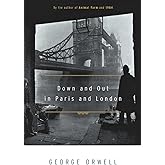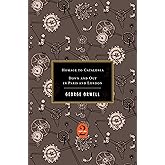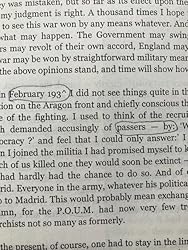Generalissimo Francisco Franco's fascist troops invaded Spain in July 1936 in order to overthrow the newly established Republic headed by the Popular Front, (composed of liberal democrats, socialists, anarchists, trade unionists, communists and secularists). The country was basically divided into Red Spain - the Republicans, and Black Spain, represented by the landed elite, committed to a feudal system and Franco's cause, Fascists, the urban bourgeoisie, the Roman Catholic Church, and other conservative sectors. The number of casualties is only an estimate, but suggests that between 500,000 and 1,000,000 people were killed. Many of these deaths, however, were not the results of military battles, but the outcome of brutal mass executions perpetrated by both sides.
During the war in Spain, approximately 38,000 non-Spanish, anti-fascist volunteers from fifty-two countries, took up arms to defend the Republican cause against Franco, who was aided by Hitler and Mussolini. Twenty-eight hundred Americans, in the Abraham Lincoln Brigade, fought here alongside their Spanish and international comrades-in-arms from 1937 through 1938. These men and women believed the defense of the Republic represented the last hope of stopping the spread of international fascism. Most of the volunteers were not political, but idealists who were determined to "make Madrid the tomb of fascism." English novelist, essayist, and critic, George Orwell was one of them.
Orwell was not just a writer, he was a partisan and he was a political idealist. A revolutionary Socialist, not a Communist, he was affiliated with the Independent Labor Party (I.L.P.). Orwell originally traveled to Spain in 1937 to observe and to write, but he almost immediately enlisted in the militia as a private. At that time there were several political parties in Loyalist Spain, and each party had its own militia units, soon to be absorbed into the People's Army. Because Orwell's letters of introduction were originally from the I.L.P., which had connections to the P.O.U.M. (Workers Party of Marxist Unification - a small group of anti-Stalinists), he joined a unit of that party. Most volunteers fought Fascism under one of the Communist or Socialist banners, in a coalition effort, with the intention of working through political and social differences when the war was won. Until that time, he believed that the anti-Fascists should work together in a united front.
When Orwell arrived in Barcelona, the Anarchists were still virtually in control of Catalonia. It was the first time Orwell had ever been in a town where the working class "was in the saddle." He clearly conveys the sense of excitement of seeing the city under de facto workers' control, and the intensity of the revolutionary spirit which coursed through the people. "Servile and even ceremonial forms of speech had temporarily disappeared. Nobody said 'Senor' or 'Don' or even 'Usted;' everyone called everyone else 'Comrade' and Thou,' and said 'Salud' instead of 'Buenos Dias.'" It seemed like all men were equal, and there was hope in the air. "All this was queer and moving. There was much in it I did not understand, in some ways I did not even like it, but I recognized it almost immediately as a state of affairs worth fighting for."
After the most elementary training, Orwell spent weeks of bitter cold and hardship on the Zaragoza front, but saw little action. He was briefly hospitalized with a festering hand wound, and then returned to action - and this time there was plenty of it. Orwell's description of the fighting and conditions at the front is extraordinarily vivid and chilling. He went on leave to meet his wife in Barcelona in April, and thus was in the thick of things for the P.O.U.M. uprising. The situation in Barcelona had changed drastically since those initial days when everyone appeared on equal footing. There were startling changes in the "social atmosphere." Perhaps initially, everyone had worn overalls and shouted revolutionary slogans "as a way of saving their skins." Now, smart hotels and restaurants were once again filled with the wealthy, while food prices had jumped enormously for the working-class. The poor experienced serious and recurrent shortages. The differences between the luxuries of the "haves" and the increasing poverty of the majority became obvious. On May 3 a struggle began between the syndicalist unions and the Catalonian police force. Orwell saw the issue as a clear one: "I have no particular love for the idealized 'worker' as he appears in the bourgeois Communist's mind, but when I see an actual flesh-and-blood worker in conflict with his natural enemy, the policeman, I do not have to ask myself which side I am on." He spent three nights on the roof of a moving-picture house, watching over P.O.U.M. headquarters until troops came from Valencia, and the street fighting stopped.
After ten days back at the front Orwell received a near lethal neck wound. By the time he left the hospital he had lost his voice and all movement in his right hand. Warned by friends that the P.O.U.M. had been suppressed, and many members jailed, Orwell escaped to France with his wife. He began to write "Homage To Catalonia" shortly thereafter. It is a most inspiring and eloquent account of his time fighting with the militia during the Spanish Civil War, not just from a soldiers perspective, but as an eye-witness to one of the most significant events of the 20th century. It first appeared in 1938, but was coldly received by the left-wing intelligentsia, who regarded Communists as heroes of the war. In Orwell's lifetime "Homage to Catalonia" sold only about fifty copies a year.
Many became disillusioned with communism in Spain, but kept silent fearing to harm the Loyalist cause. Orwell's take on the Communist's/Stalin's political machinations, and the overriding priority of the USSR to strengthen Soviet foreign policy, may appear obvious today, but those who put their lives on the line in Spain were much more naive. "The whole of Comintern policy is now subordinated (excusably, considering the world situation) to the defense of the USSR." History now documents the Communist betrayal as far more terrible than Orwell conceived. He became an enemy of Soviet style communism as a consequence of his experiences in Spain, and advocated the English brand of socialism. There is an excellent Introduction in this edition by Lionel Trilling which discusses, to some extent, the political wheeling and dealing that occurred on the Republican side: how the Communist Party allied itself with right wing socialists and liberals to crush the P.O.U.M., with the standard Party line that anyone to the left of them were Trotskyists and therefore "fascist traitors."
This is a masterpiece which brings history to life. For a truly intense portrait of the period, you can do what I did, which was to read Ernest Hemingway's "For Whom The Bell Tolls" with "Homage To Catalonia," back-to-back. My highest recommendations!
JANA

Download the free Kindle app and start reading Kindle books instantly on your smartphone, tablet, or computer - no Kindle device required.
Read instantly on your browser with Kindle for Web.
Using your mobile phone camera - scan the code below and download the Kindle app.

 Audible sample Sample
Audible sample Sample 


[(Homage to Catalonia)] [ By (author) George Orwell, Introduction by Julian Symon ] [March, 2013] Mass Market Paperback – March 1, 2013
by
George Orwell
(Author)
{"desktop_buybox_group_1":[{"displayPrice":"$23.93","priceAmount":23.93,"currencySymbol":"$","integerValue":"23","decimalSeparator":".","fractionalValue":"93","symbolPosition":"left","hasSpace":false,"showFractionalPartIfEmpty":true,"offerListingId":"jrwHll4pAOiaC7huw3V6gg%2FqbF4R9r80cL%2BrbgiphoJtcaKgASFiUbtE%2BRgGnfD5FqbmriRfNCMj8VyeTL05Axv9w%2BQZRcr0toBoLQpICaqrsM3Q01dK5iTewp6noaAg6mCqERhSWZi5gLoalPad5Qz2vLO%2Bho4JZ7hm5tespnW3B37h0pg42UkEMq8%2F1Ms%2F","locale":"en-US","buyingOptionType":"NEW","aapiBuyingOptionIndex":0}]}
Purchase options and add-ons
'Every line of serious work that I have written since 1936 has been written, directly or indirectly, against totalitarianism and for democratic Socialism as I understand it'. Thus wrote Orwell following his experiences as a militiaman in the Spanish Civil War, chronicled in Homage to Catalonia. Here he brings to bear all the force of his humanity, passion and clarity, describing with bitter intensity the bright hopes and cynical betrayals of that chaotic the revolutionary euphoria of Barcelona, the courage of ordinary Spanish men and women he fought alongside, the terror and confusion of the front, his near-fatal bullet wound and the vicious treachery of his supposed allies.Eric Arthur Blair (1903-1950), better known by his pen-name, George Orwell, was born in India, where his father worked for the Civil Service. An author and journalist, Orwell was one of the most prominent and influential figures in twentieth-century literature. His unique political allegory Animal Farm was published in 1945, and it was this novel, together with the dystopia of Nineteen Eighty-Four (1949), which brought him world-wide fame. All his novels and non-fiction, including Burmese Days (1934), Down and Out in Paris and London (1933), The Road to Wigan Pier (1937) and Homage to Catalonia (1938) are published in Penguin Modern Classics.
- LanguageEnglish
- PublisherPENGUIN CLASSICS
- Publication dateMarch 1, 2013
Similar items that may deliver to you quickly
Page 1 of 1 Start overPage 1 of 1
Product details
- ASIN : B00LKMX7AW
- Publisher : PENGUIN CLASSICS (March 1, 2013)
- Language : English
- Customer Reviews:
Customer reviews
4.4 out of 5 stars
4.4 out of 5
5,453 global ratings
How customer reviews and ratings work
Customer Reviews, including Product Star Ratings help customers to learn more about the product and decide whether it is the right product for them.
To calculate the overall star rating and percentage breakdown by star, we don’t use a simple average. Instead, our system considers things like how recent a review is and if the reviewer bought the item on Amazon. It also analyzed reviews to verify trustworthiness.
Learn more how customers reviews work on AmazonReviews with images
5 Stars
Really good historical account on the political climate and fighting of the Spanish civil war
Great book
Thank you for your feedback
Sorry, there was an error
Sorry we couldn't load the review
-
Top reviews
Top reviews from the United States
There was a problem filtering reviews right now. Please try again later.
Reviewed in the United States on June 30, 2005
Reviewed in the United States on June 21, 2008
After re-reading Catalonia, some 20 years after my first encounter, I am disappointed. I do not think that this is Orwell's best work. It has many of his strengths, mainly the elegant, efficient and straightforward prose that he developed so impressively, but there are some flaws. Main flaw in my view is the fact that the main political theme has become dead and irrelevant. Stalin died some decades ago, the Soviet Empire collapsed, we don't need to dig in the little details of their abominable strategies any longer. Of course we can't blame Orwell for the fact that his concerns are not ours any more. But it shows that the book was not timeless in the sense of surviving its immediate subject, as his other non-fiction did.
Second main weakness of the book: the narration of the Barcelona street fighting and the attempts at understanding them are rather boring.
On the strong side: the tales from the Aragon front are much more interesting. Orwell saw less fighting than he was keen to experience, but he describes the trench routine with the same liveliness that he brought to Wigan coalmines and Paris restaurants previously.
He did see enough fighting to get dangerously injured. People said to him that few men survive a shot through the neck, so he was lucky. He thinks he would have been luckier if he had not been shot at all.
Orwell published the book a few months after his adventure, and before the Spanish Civil War was over. Surprisingly the book was a commercial failure then, and equally surprisingly it has later been named as one of the best non-fiction books of the century.
Why was it ignored in the early time? Possibly because he told the world things that the world didn't want to know. He busted the myth that there was a confrontation of the good and the bad in Spain, that democracy fought fashism. Orwell shows us that there were at least 3 camps, not 2. The most vicious fighting that he experienced was among the 'good guys'. The government side was influenced strongly by the communist party who had secured the support from Russia. Since no other country provided weapons to the government side, that secured a lot of mileage.
Orwell was a hopeless romantic, who loved the feeling of working class rule that he got when he first arrived in Barcelona. That must be the reason for the otherwise incomprehensible book title. That basically socialist attitude must also have put quite a few potential readers off at the time of publication.
Orwell later saw the few months in Spain as his political training period. It put him off communism and Stalin for good, but confirmed his socialist attitude, which however never found a political home in a party, though he did support Labor in his remaining years, from the outside.
Second main weakness of the book: the narration of the Barcelona street fighting and the attempts at understanding them are rather boring.
On the strong side: the tales from the Aragon front are much more interesting. Orwell saw less fighting than he was keen to experience, but he describes the trench routine with the same liveliness that he brought to Wigan coalmines and Paris restaurants previously.
He did see enough fighting to get dangerously injured. People said to him that few men survive a shot through the neck, so he was lucky. He thinks he would have been luckier if he had not been shot at all.
Orwell published the book a few months after his adventure, and before the Spanish Civil War was over. Surprisingly the book was a commercial failure then, and equally surprisingly it has later been named as one of the best non-fiction books of the century.
Why was it ignored in the early time? Possibly because he told the world things that the world didn't want to know. He busted the myth that there was a confrontation of the good and the bad in Spain, that democracy fought fashism. Orwell shows us that there were at least 3 camps, not 2. The most vicious fighting that he experienced was among the 'good guys'. The government side was influenced strongly by the communist party who had secured the support from Russia. Since no other country provided weapons to the government side, that secured a lot of mileage.
Orwell was a hopeless romantic, who loved the feeling of working class rule that he got when he first arrived in Barcelona. That must be the reason for the otherwise incomprehensible book title. That basically socialist attitude must also have put quite a few potential readers off at the time of publication.
Orwell later saw the few months in Spain as his political training period. It put him off communism and Stalin for good, but confirmed his socialist attitude, which however never found a political home in a party, though he did support Labor in his remaining years, from the outside.
Top reviews from other countries
C D LILTVED
5.0 out of 5 stars
Orwell
Reviewed in Canada on January 29, 2024
Having recently traveled in Spain, this Orwell and Laurie Lee's autobiographical accounts of life in the 1930s are almost unimaginable, as well as their discussions of Spain's (fairly recent) feudal past.
Cliente Amazon
5.0 out of 5 stars
Fue un regalo
Reviewed in Spain on May 17, 2024
Era para regalar y le encantó a la persona que lo recibió.
Amazon Customer
5.0 out of 5 stars
An important classic
Reviewed in Sweden on April 18, 2024
An important read in these troubled times.
brusasco margaret
5.0 out of 5 stars
classic of Spanish civil war
Reviewed in Belgium on November 22, 2023
it is classic book, to read and reread.
Korhan
1.0 out of 5 stars
Worst printed book that I have ever read
Reviewed in Sweden on November 14, 2023
I took a photo from inside the book so I was not sure if that is ok to publish here. Therefore I tried to check if there is such a notice in the book. It has no publisher information! Only second photo page exists. Anyways, as you can see the text in the photo, it is tiring to read the book with so many typos and no spaces between random words. The paper quality is ok but I have no idea who published this book and why with so many mistakes. I read only 2 pages so cannot comment on book actually.
Korhan
Reviewed in Sweden on November 14, 2023
Images in this review






![[(Homage to Catalonia)] [ By (author) George Orwell, Introduction by Julian Symon ] [March, 2013]](https://m.media-amazon.com/images/I/41sPzXXUZqL.jpg)











